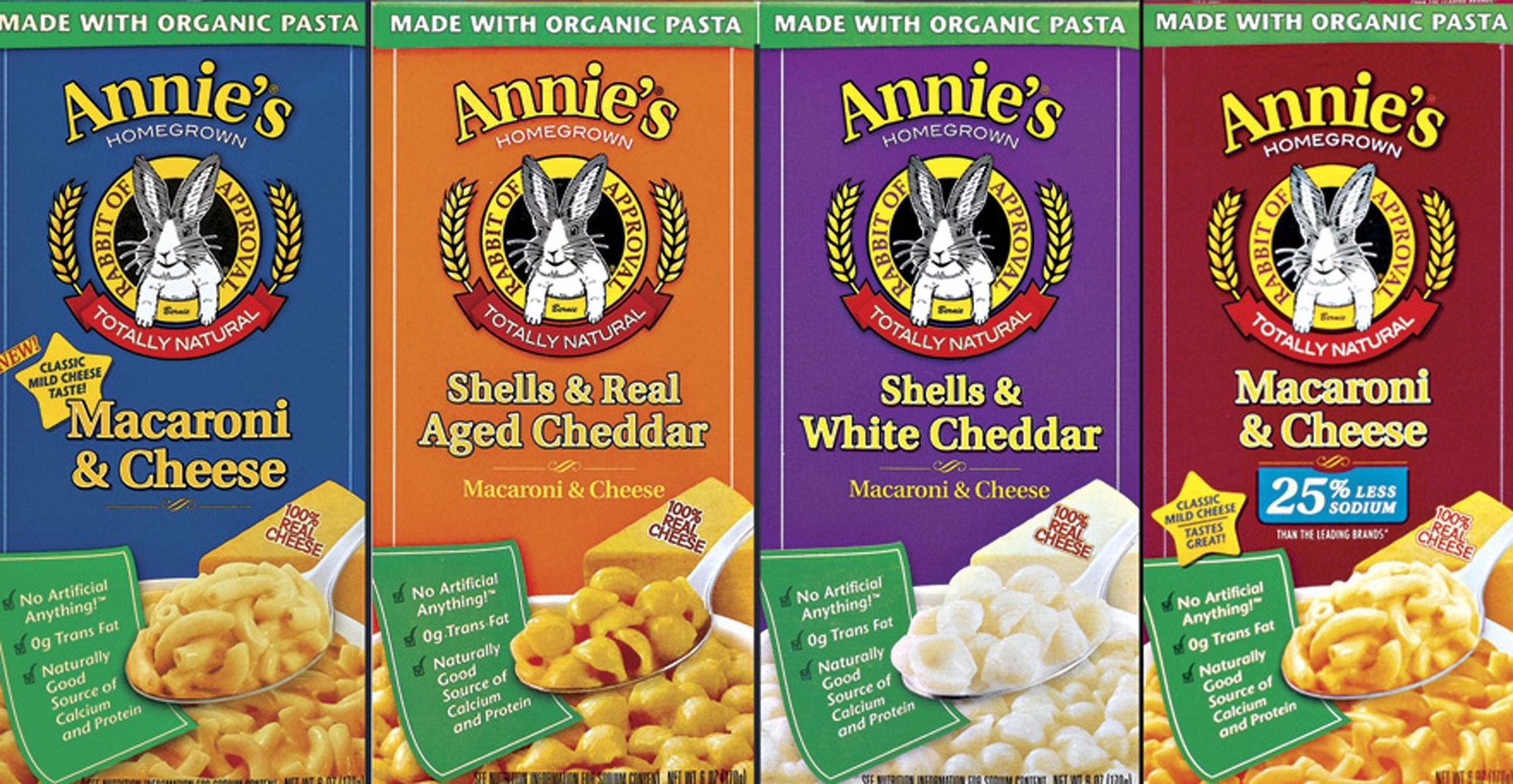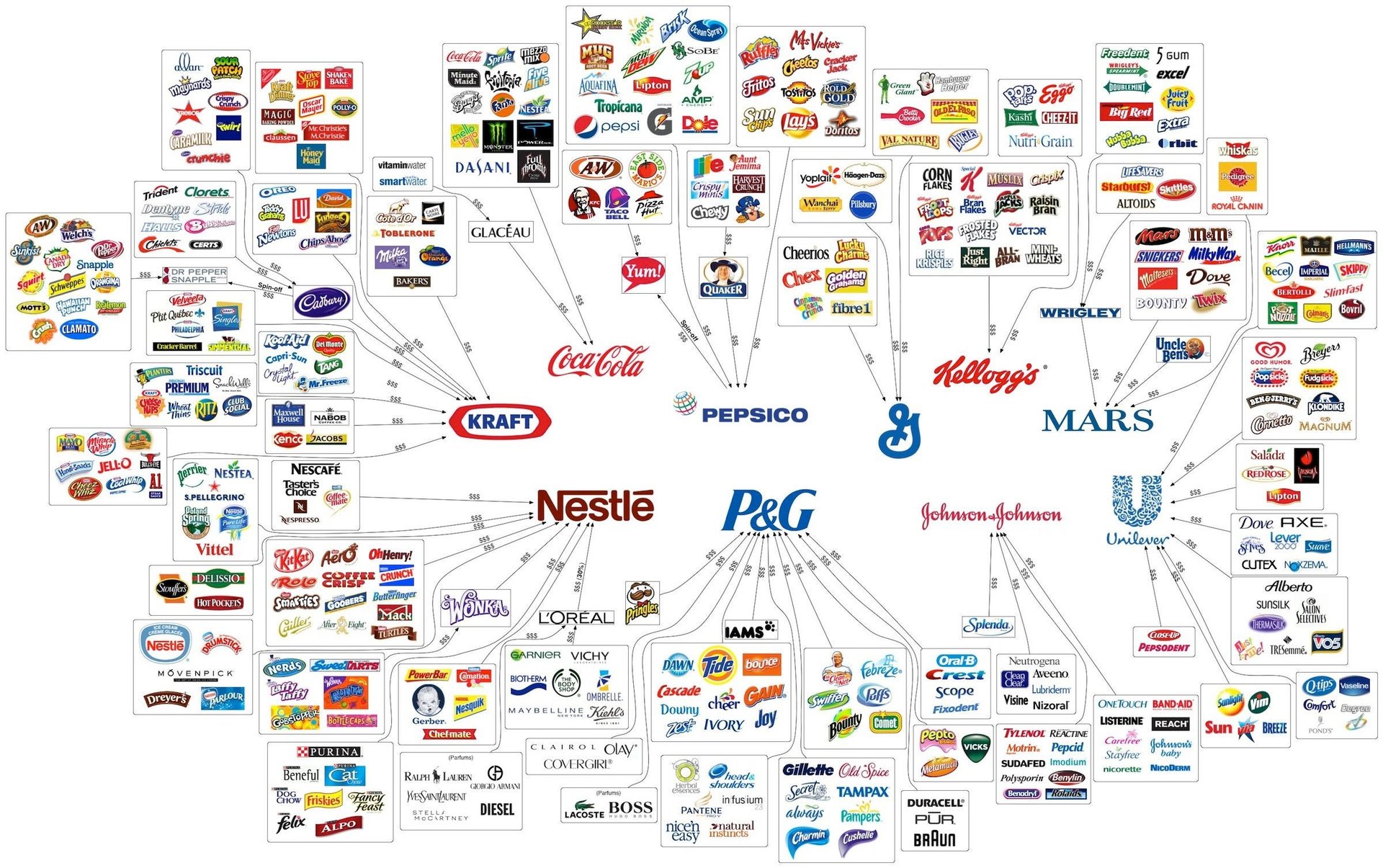Why Annie’s won’t suffer from its acquisition by General Mills
Food industry giant General Mills announced yesterday that it will buy Annie’s Homegrown—the organic food company with a bunny mascot and a popular line of boxed macaroni and cheese—for $820 million in cash. It’s the latest effort by packaged food giants to cash in on consumer affection for organic indie brands.


Food industry giant General Mills announced yesterday that it will buy Annie’s Homegrown—the organic food company with a bunny mascot and a popular line of boxed macaroni and cheese—for $820 million in cash. It’s the latest effort by packaged food giants to cash in on consumer affection for organic indie brands.
Beyond Annie’s claims of being organic and natural, its customers have cherished the idea of a brand that’s seemingly small and homespun. “For our family purchasing Annie’s was a way to vote with our dollar,” one Facebook user wrote on the Annie’s Facebook page yesterday.
Not surprisingly, some of those customers are lamenting the acquisition:
The vacuuming up of niche brands by corporate giants is a hot topic among food followers, who fear the encroachment of corporate values. For example, this Canadian blogger’s diagram, which shows 10 large companies that own small brands often perceived to be independent, went viral this summer.

But if recent experience is any judge, teaming up with bigger companies offers niche brands more growth potential, often without compromising the quality of their product. For example:
Ben & Jerry’s
Unilever, parent company of once-independent ice cream purveyor Ben & Jerry’s, is against GMO labeling, but Ben & Jerry’s is a vocal supporter of GMO label laws. For now, the Vermont-based brand and its corporate parent have agreed to disagree. “Ben & Jerry’s has never shied away from speaking out on social issues, and Unilever, since acquiring the company in 2000, has not interfered,” writes Businessweek.
Larabar
General Mills acquired Larabar, the gluten-free fruit and nut bars, in 2008. (It also owns organic cereal brand Cascadian Farms, and in 2012, it bought Massachussetts-based snack company Food Should Taste Good.) In its 2014 annual report, General Mills said that Larabar sales have been “growing at a double-digit pace.”
Burt’s Bees
The story of Burt’s Bees and its buyer, Clorox, is a dream scenario for an indie company acquisition. Not only did sales of Burt’s Bees products take off after its 2007 acquisition (its revenues have grown at double-digit pace every year since then with the exception of 2009); the niche brand helped Clorox reshape its supply chain to be more cost-effective and sustainable.
As for Annie’s, CEO John Foraker insists that the brand’s core values won’t change. “We remain dedicated to real food; simple, organic, non-GMO and natural ingredients; a clean planet and sustainable business practices. These values are part of our DNA and they will remain so,” he said on Facebook.
Anthony Johndrow, a managing partner at the advisory firm Reputation Institute, says General Mills’s acquisition isn’t likely to hurt Annie’s sales, since most of its less strident customers will be none the wiser. The acquisition is “a good injection of something that General Mills has been working toward,” says Johndrow. So the risk isn’t so much that General Mills will change Annie’s. It’s that the Annie’s acquisition won’t be enough to change General Mills.